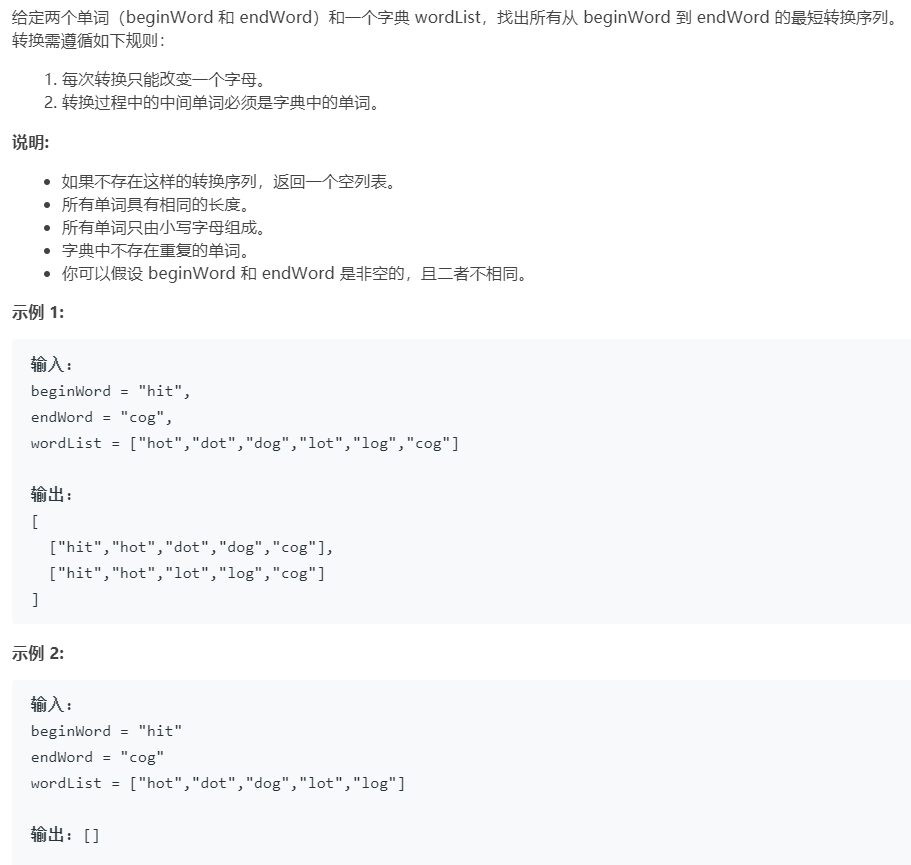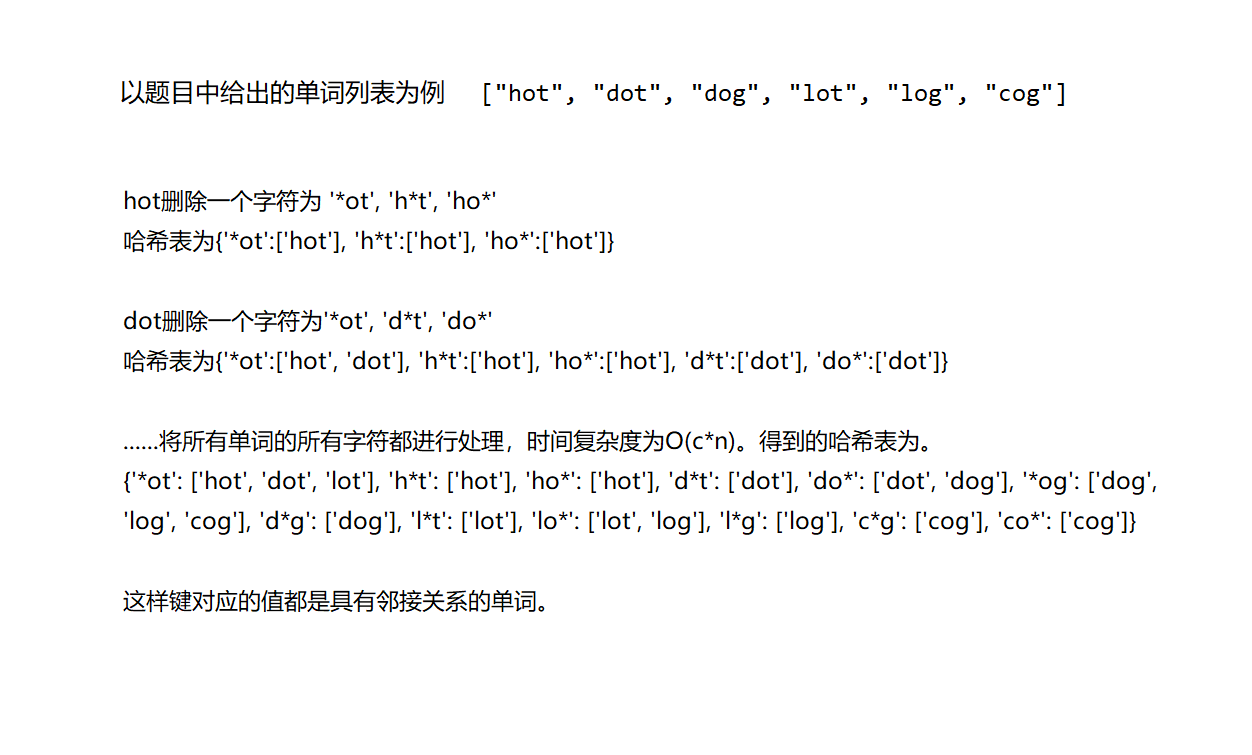
题目分析
这道题目是一个路径搜索问题,每次只能改变一个字母,因此每一个单词都有邻接关系,求出从起始单词到终点单词的路径中最短的所有路径,这题难点不在于路径搜索,而是如何最高效的确定路径,因为要判断两个单词是否有邻接关系,遍历所有字符,而且逐个字符判断,**时间复杂度为$O(c * n^2)$**,有没有更好更快的方法呢?
邻接关系的确定
如果两两挑选,并且逐个字符判断,则**时间复杂度为$O(c * n^2)$,如果建立一个哈希表,里面存储缺省一个字符的所有匹配单词,则可以在时间复杂度为$O(c * n)$**的情况下确定邻接关系。
DFS
采用DFS来求解,沿着起始单词进行路径搜索,如果搜索到终点则记录长度,并且将路径保存,如果当前长度大于最优长度或者出现环,则剪枝,不继续搜索。最后从所有符合的路径中挑选出长度为最优长度的即可,因为初始最优长度设为无穷大,如果存在大量的环,DFS会耗费非常多的时间,因此不是最优的解法。
1 | from collections import deque, defaultdict |
BFS
想到最短路径就要想到广度优先搜索,因为广度优先搜索是从起点开始一层一层向外搜索,因此最先搜索到终点的路径一定是最短路径,为什么这道题目BFS比DFS快呢,因为BFS经过的路径不需要再次经过,所以建立一个passed集合,经过的点都记录在里面,下次直接跳过即可,注意这道题目要求所有的最短路径,只能每一层寻找完之后再加入passed集合,如果A-B-C是可以的,这时就将C加入passed集合,那么A-D-C就会被跳过,因此要将当前层都遍历后再修改passed集合。
1 | class Solution(object): |
刷题总结
路径搜索问题太经典了,多次强调BFS和DFS一定要牢记,两者绝大部分情况是可以相互转换的,但是可能存在着效率不同的问题,小伙伴们多多刷题,多多总结。